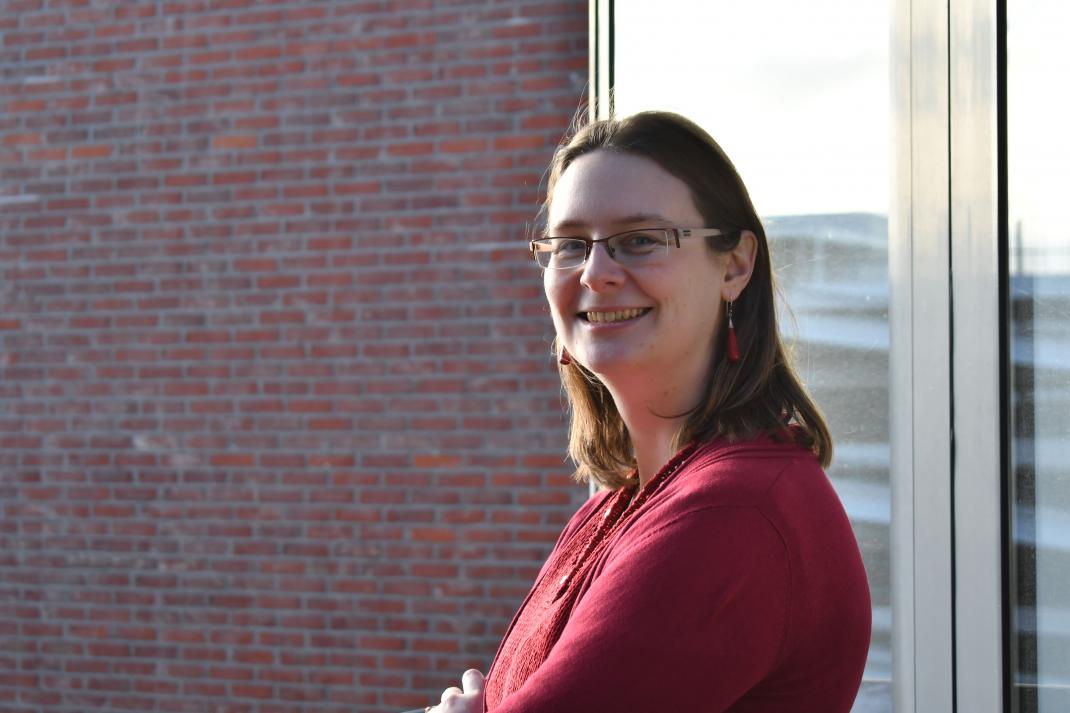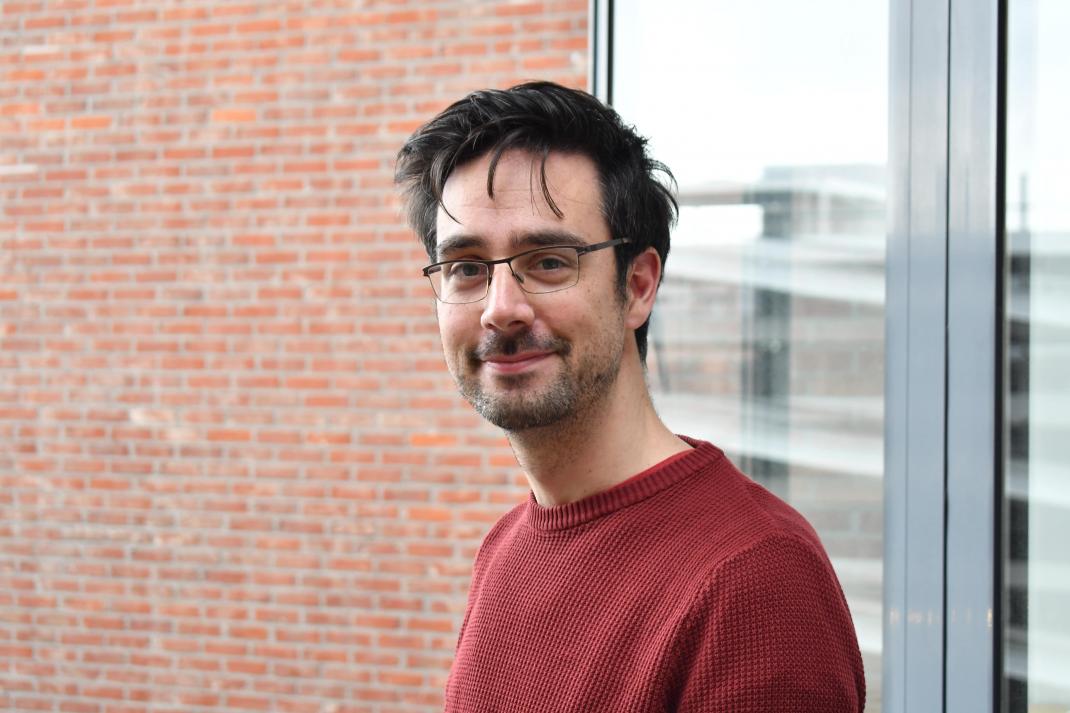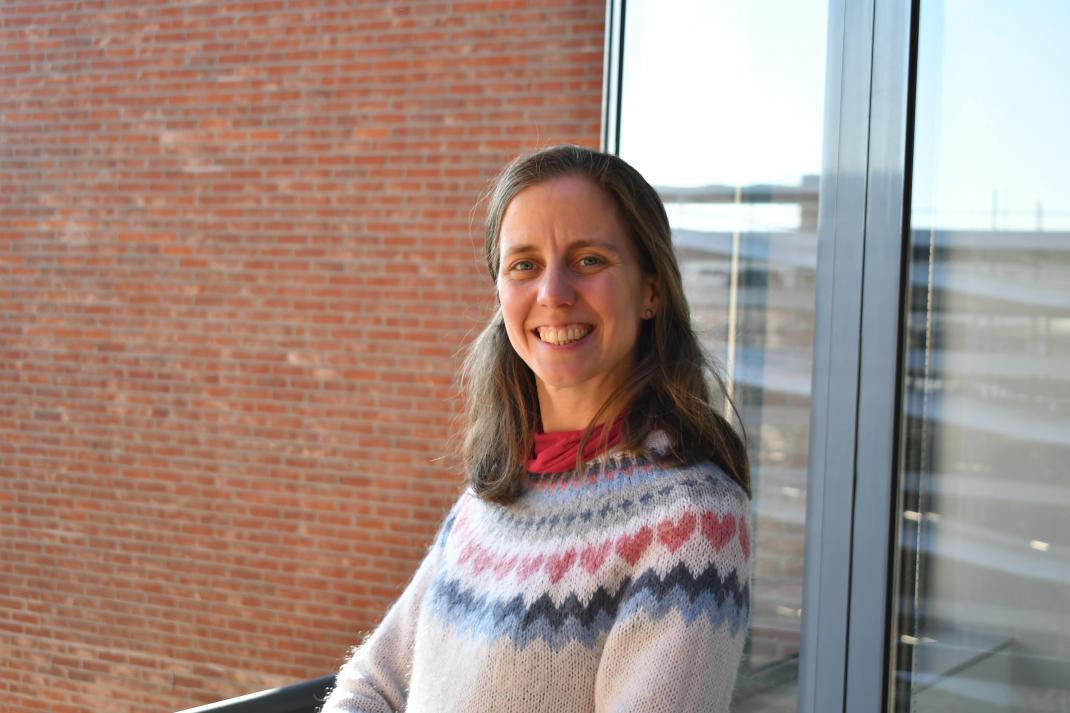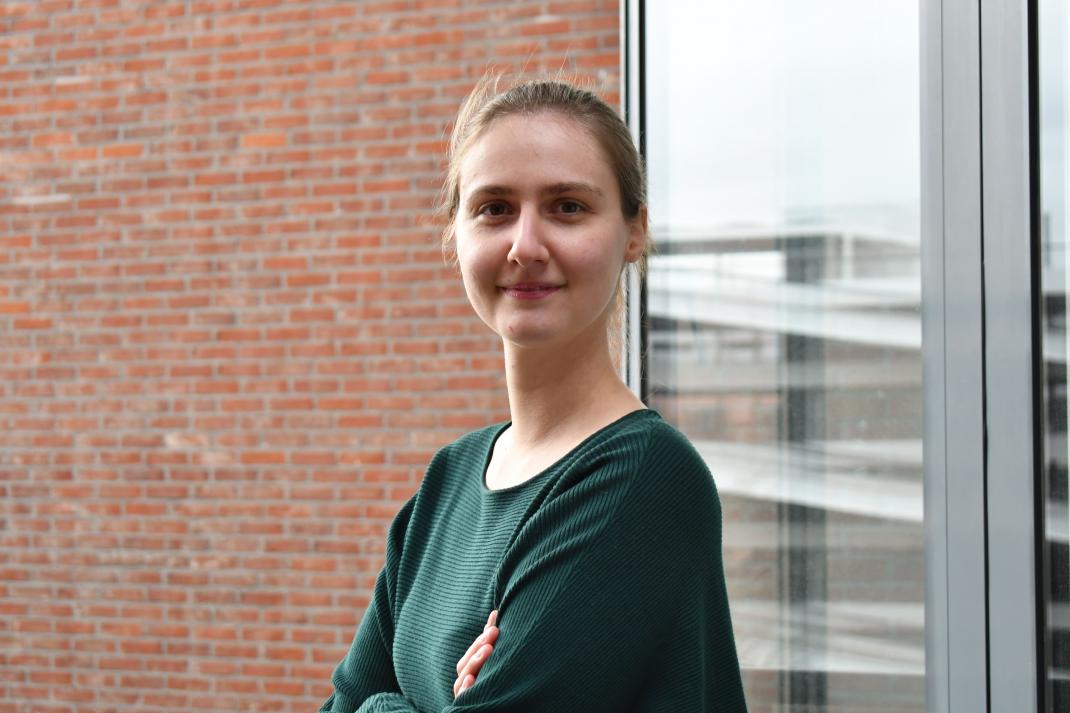Pioneers at work – the ambitions of the Scivil team
Scivil, the Flemish knowledge centre for citizen science, was founded in January 2019 by the Flemish Government. The start-up phase is now over and Scivil has evolved into a well-known institute in the world of citizen science and science in Flanders. Time to meet the coordinator and the team behind this pioneering work.
Increase of expertise
She’s still a scientist in heart and soul, an enthusiastic meteorologist with a PhD; Annelies Duerinckx, coordinator of Scivil. She aims to share her wonder for the way the world works. Starting up a knowledge centre citizen science was a challenge she happily took on a year ago.
The fascinating thing about such a young organisation, Annelies says, is that she can see the professionalism and expertise of the scientists, citizens and her own team noticeably increasing. Moreover, it was very insightful and exciting for herself to face such a new challenge and explore unknown territory.
Citizen science is very alive in Flanders and researchers, policy makers and citizens’ initiatives keep on building more experience. For example, Annelies found that the quality of the submitted applications of the second citizen science financing call of department Economy, Science and Innovation of the Flemish government was remarkably higher than those of the first call. Scivil aims to be the number one network organisation that collects experiences of earlier citizen science initiatives, joins them, and passes them on to the ‘newcomers’ in the citizen science world.
Anyone in Flanders who has an idea for a citizen science project, can check their idea with Scivil on feasibility. This way, initiators get feedback on their proposals and projects. Scivil supports them with their acquired knowledge, gives advice (in the context of a project call, but also apart from that) and refers to other institutions when needed. This all with the aim of getting more and better citizen science projects.
Room for ambition
Scivil’s team is small but versatile, ideas can be developed and tested, emphasis can change according to the importance of things. Annelies sees important challenges in continuing the growth of existing, well-running citizen science projects; “What if their funding ends?”, “How can results or data keep their value, or be expanded?” In the long term, she mostly sees the possibilities of European funding and including the citizen science aspect in project proposals of existing funding programmes, like those of FWO or VLAIO. Ideally, ‘citizen science’ will become such an accepted methodology in the future that there will always be a citizen science aspect included in the project proposal when it is the ideal way to obtain certain research findings.
In the short term, the coordinator of Scivil wants to work on two main things. On the one hand, there is the need for a solid offer of support for anyone who wants to work with citizen science in Flanders. On the other hand, she wants to keep room for innovation within Scivil and within the entire citizen science community of Flanders. For the latter, she can without a doubt rely on the experiences of a number of Flemish partners Scivil is working with. Naturally, Annelies is assisted by her team of advisors, looking to realise their own ideas and ambitions, each in their domain.
“The fascinating thing about such a young organisation is that I can see the professionalism and expertise of the scientists, citizens and my own team noticeably increasing.”
Tackling issues
Jef Van Laer, advisor citizen science, joined the Scivil team in September after eight years of experience as a science communicator at VUB. He found his passion for citizen science by managing the communication aspect of the project ‘Eye for Diabetes’. There he experienced the way citizen science can lead to a true interaction between citizens and scientists and how it can lead to a real win-win for both parties. Moreover, he noticed that citizen scientists make especially valuable suggestions that even scientists were amazed by. According to him, the future of citizen science lies in continuing to follow that path. He likes to see projects emerge from research institutions, but also from the power of citizens themselves, like committees, groups, companies, and schools.
In Scivil, Jef is responsible for the organisation of network events and inspiration sessions. Starting up and supporting learning networks is one of his main tasks. In the future, he would like to see thematic work groups on ethics and inclusion in Scivil. In both domains, the learning curve for all parties would be steep. How do you reach an inclusive public with citizen science projects? What can you expect from a citizen scientist and how do you deal with the reward of the effort the citizen provides? These are examples of issues, as Jef says, that are ready to be tackled.
“Citizen science can lead to a true interaction between citizens and scientists and lead to a real win-win for both parties. I noticed that citizen scientists make especially valuable suggestions that even scientists are amazed by.”
Enhancing support
Mieke Sterken has a broad scientific basis as a geographer and a researcher in aquatic ecology and climate change. She has experience in educational, museological and citizen science projects with different organisations. Currently, she’s dividing her time between Scivil, Brightlab and KU Leuven. Within Scivil, she’s focusing on the domains of data management, ethics and privacy, as a parttime advisor.
Within the working group Data Management she aims to prepare a proposal of an Open Data Charter, analogous to the Open Data Charter that was created by the Flemish government. Mieke gains inspiration from abroad, where a lot of good practices and standards on outdoor observations biodiversity are to be found. The ultimate goal is to improve the flow of data, e.g. by making data platforms more interoperable, as she explains.
Detecting bottlenecks, finding experts, and setting up networks are the key tasks of Mieke. Her main motive? That is working on the perception of science and the scientific literacy of young people and the general public. How do you get citizen science in the clasroom and how do you increase the societal support for science? Those are questions that she’s working on.
“My main motive is working on the perception of science and the scientific literacy of young people and the general public.”
Communication, a field on its own
The fact that communicating clearly is one of the possibilities that enhance the support for science, and citizen science more specifically, is something Sanne Strouven knows as no one else. Sanne is communication advisor of Scivil. After a Master of Communication Sciences and jobs as a customer advisor for BNP Paribas Fortis and communication specialist at the city of Leuven, she continues her career at RVO-Society.
There she is dividing her time between Scivil and Brightlab, the two sister organisations that are both under the umbrella organisation RVO-Society*. She is copywriter and editor, and works with a mix of traditional media channels, such as newsletters, websites (like this one!) and social media such as Facebook, Twitter and Instagram.
Sanne mostly wants to work on the perception that citizen science would be only for experts and semi-professionals. Laypeople and absolute beginners can also help to improve science with their participation in projects.
Moreover, communication is labour-intensive and a field on its own. It is not unusual that scientists that guide a citizen science project ask for help to make the communication aspect work. It’s something of which they might first have thought it required less attention, expertise, and time. Recruiting citizens is one thing, keeping them motivated and rewarding them for their efforts is another. The communication guide (in Dutch and English) that Scivil published is, according to her, a direct hit. In the short term, Sanne wants to make sure that scientists find their way to Scivil, even before they start with a project on citizen science, so that they can get the ideal support starting from the sprouting of the idea until the completion of it.
“I want to work on the perception that citizen science would be only for experts and semi-professionals. Laypeople and absolute beginners can also help to improve science with their participation in projects.”
*Brightlab and Scivil are two sister organisations under umbrella organisation RVO-Society. Together we have one big, common goal: inspiring young people, teachers, and citizens with educational and leisure activities on science and technology.
Scivil mostly focuses on building bridges between citizens (of all ages) and scientists. Brightlab focuses on young people and teachers with stimulating, powerful and innovating STEM-education.
Interview en tekst: Hilde Devoghel (Tales and Talks)

Annelies Duerinckx

Jef Van Laer

Mieke Sterken

Sanne Strouven